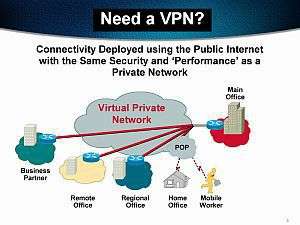On March 23, U.S. Senate voted 50-48 (with two absent votes) to pass the Congressional Review Action resolution from Senator Jeff Flake. If the House of Representatives approves the resolution as well, it will not only roll back the ISP privacy rules but actually prevent the FCC from passing any similar rules in the future.
PROPOSED RESOLUTION
Earlier this month, Republican Senators introduced a resolution that would roll back privacy rules for Internet service providers (ISPs). The rules, approved by the Federal Communications Commission (FCC), were designed to prevent ISPs from collecting and using users’ personal data without asking permission first.
The Senate began debating the proposed measure on Wednesday, March 22, under a clause that allows Congress to repeal recently passed federal regulations. Introduced by Senator Jeff Flake, a Republican from Arizona, the resolution is backed by over 20 Republican co-sponsors.
CONTROVERSY
Under the rules approved by the FCC in October 2016, under then-President Barack Obama, providers would be obliged to get consumer consent before using their private data for advertising and internal marketing. Such data includes precise geolocation, financial information, health information, children’s information and web browsing history.
ISPs have described the rules as burdensome and unnecessary; the FCC at the time said they were crucial for defending consumers’ privacy. However, the new FCC Chairman Ajit Pai, nominated by Republican President Donald Trump, repeatedly voiced his opposition to these regulations.
In fact, earlier this month, the FCC temporarily blocked the privacy rules from taking effect – a victory for the internet providers that had strongly resisted the measure, such as AT&T, Comcast, and Verizon.
THE SENATE DEBATE
During the Wednesday’s debate, Senator Flake argued that “Congress needs to repeal these privacy restrictions in order to restore balance to the internet ecosystem and provide certainty to consumers.” Ironically, by “privacy restrictions” he actually meant the opposite — restrictions for ISPs to use private subscriber data without permission.
However, opponents of the Republican-backed resolution sharply criticized the move to allow broadband providers to profit from consumers’ private information without their knowledge or consent. Senator Ed Markey of Massachusetts, who has been a strong campaigner for net neutrality and supported the FCC’s most recent Internet regulations, asked:
“How much privacy are people in this country entitled to? Are we going to allow the broadband companies to determine that?”
WHAT IT MEANS FOR YOU
A final Senate vote on the proposed measure is planned for Thursday, March 23, but it is not yet clear when the U.S. House of Representatives might start working on it.
If the resolution passes, ISPs will be able to collect location, financial, healthcare and browsing data from customers by default. Furthermore, the resolution would not simply revoke the privacy rules for the time being. As it is an official disapproval under the Congressional Review Act, it would actually prevent the FCC from passing any similar rules in the future.
While the Congress is deciding whether to prioritize corporate profits over citizens’ rights, there are some steps Americans can take to protect their privacy, such as using a VPN. A VPN (Virtual Private Network) secures and encrypts Internet traffic, helping to protect user’s identity and data by hiding their IP address. It scrambles all user’s online data, so their ISP cannot decipher and use it.



How do you measure its effectiveness? How do we know lookseek.com stops tracking? Our readers would likely want to know.
Privacy is our right, not for the Government to spy on us. The future is alternative search engines. We all need to us another search engine and than we take away the governments power, who have become to powerful, or we just go back to yelling loud try Lookseek com a no tracking search or one of the other alternative searches. Have a great day
Comments are closed.